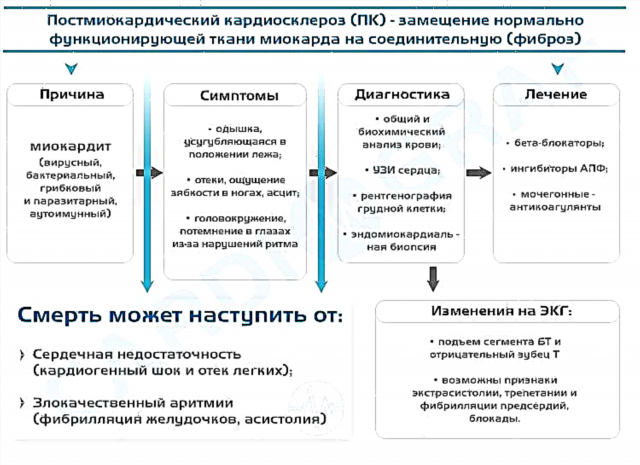Antibiotics are potent antimicrobial drugs that help to quickly stop inflammation and significantly speed up recovery. But the decision on the appropriateness of their use should be made only by a doctor. Antibiotics are not always needed for ear pain. Often, at the initial stage, it is possible to solve the problem with softer means. But in some cases, refusal to use antibiotics can lead to the development of serious complications.
When and why
 An antibiotic for pain in the ear is most often prescribed for purulent otitis media. But in cases where the accumulation of pus is still small, it does not come out and does not put too much pressure on the eardrum, other means of treatment can be dispensed with. You need to start drinking antibiotics immediately if pus begins to leak out or signs of serious general intoxication appear:
An antibiotic for pain in the ear is most often prescribed for purulent otitis media. But in cases where the accumulation of pus is still small, it does not come out and does not put too much pressure on the eardrum, other means of treatment can be dispensed with. You need to start drinking antibiotics immediately if pus begins to leak out or signs of serious general intoxication appear:
- increased pain;
- temperature increase;
- hearing impairment;
- dizziness and nausea.
In this case, antibiotic therapy will help prevent further spread of the infection and avoid serious consequences such as sepsis or significant hearing loss. However, the course of treatment will be effective only if the drug is selected correctly.
At an early stage of the disease, the antibiotic can simply be dripped into the ear. Now there are several effective drip drugs: Tsipromed, Sofradex, Anauran and others.
However, most of these medicines are contraindicated if the tympanic membrane has already ruptured. In this case, the antibiotic for the ear will have to be administered orally or intramuscularly.
Application rules
 Many patients categorically refuse to use antibiotics for pain in the ear, believing that the harm from these drugs is more than good, and the ear will go away on its own. It is important to understand here that if the drug is selected by a doctor, then the negative consequences of its use will be minimal. But if the inflammation in the middle or inner ear is not stopped in time, you can lose your hearing altogether.
Many patients categorically refuse to use antibiotics for pain in the ear, believing that the harm from these drugs is more than good, and the ear will go away on its own. It is important to understand here that if the drug is selected by a doctor, then the negative consequences of its use will be minimal. But if the inflammation in the middle or inner ear is not stopped in time, you can lose your hearing altogether.
There are a few rules to help you make your antibiotics as safe as possible:
- Before the first use of any antibacterial drug, it is necessary to make a test for its individual intolerance. The body's rejection of any antibiotics is extremely rare, but an allergy to a particular drug can be very strong, even if a person has not previously shown such reactions.
- Only the attending physician should prescribe the drug, determine its dosage and administration rules. The same medicine is used in different ways for different diagnoses. It all depends on the age of the patient, the characteristics of the course of the disease and many other factors.
 Often, patients independently stop dripping an antibiotic into their ears or taking pills as soon as the pain syndrome disappears. But the fact that the pain is gone does not mean recovery. Many drops contain lidocaine, analgin or other pain relievers. If you stop using them, the pain will return, and the inflammatory process will flare up with renewed vigor. Only a doctor can stop using the medicine.
Often, patients independently stop dripping an antibiotic into their ears or taking pills as soon as the pain syndrome disappears. But the fact that the pain is gone does not mean recovery. Many drops contain lidocaine, analgin or other pain relievers. If you stop using them, the pain will return, and the inflammatory process will flare up with renewed vigor. Only a doctor can stop using the medicine.- In no case should the recommended dosages be exceeded. This can lead to severe side effects, especially in children. If the pain is too severe, it is best to ask your doctor for additional pain relievers.
- It is important to apply antibacterial drugs at regular intervals. Thus, the required concentration of the drug is constantly maintained in the patient's blood. If, for some reason, the drug intake is missed, it is by no means possible to compensate for this with a double dose.
When taking an antibiotic for the ears, an adult should remember that under the influence of alcohol, its negative effect is enhanced. In addition, its combination with alcohol can cause unpredictable reactions. Therefore, at the time of treatment, you will have to completely abandon all alcoholic beverages and alcohol-containing drugs.
The best antibiotics
There are no specific antibiotics for the ears. There are universal drugs that are used for a wide variety of diseases. It is possible to select a medicine as accurately as possible if you take a sample of the exudate from the ear and conduct laboratory studies of the pathogenic microorganisms present in it.
When there is no such possibility or the inflammatory process is too strong and there is simply no time to wait for the test results, broad-spectrum drugs are prescribed, the most effective of which are:
 "Amoxicillin" or its analogue "Amoxil". It is used in the initial stages of uncomplicated otitis media and can completely cure the patient in 3-5 days. Available in tablet form or injection vials. It is effective for most bacteria, but does not cure fungal and viral diseases. It has a rather long list of contraindications.
"Amoxicillin" or its analogue "Amoxil". It is used in the initial stages of uncomplicated otitis media and can completely cure the patient in 3-5 days. Available in tablet form or injection vials. It is effective for most bacteria, but does not cure fungal and viral diseases. It has a rather long list of contraindications.- "Levomycitin". Available in the form of tablets, injection vials and ear drops. A very strong drug that negatively affects blood formation and the condition of the kidneys. Application in children - only under the strict supervision of a doctor in the form of drops. Duration of treatment is 7-10 days, it can be extended up to 14 days.
- "Bitsillin". It is prescribed only to adults in the form of intramuscular injections for diseases requiring constant maintenance of a certain concentration of the active substance in the blood. It does not affect gram-negative bacteria, therefore, it is usually prescribed only after analyzing the ear exudate for pathogenic flora. It is applied once a day, the duration of treatment is up to 3 months.
- Ceftriaxone. It is used even with complicated purulent otitis media. Prevents the development of sepsis, quickly relieves inflammation, eliminates pain. Has minimal contraindications. It is injected intramuscularly, necessarily after checking for individual intolerance. Can be assigned to children.
 "Cefazolin". It is administered intramuscularly or intravenously, it is destroyed in the stomach, so there is no tablet form. It has a wide spectrum of action and a minimum of side effects; it is prescribed, if necessary, even to children from 1 month of age. It is not used for chronic intestinal and renal diseases. The course of treatment is up to 14 days.
"Cefazolin". It is administered intramuscularly or intravenously, it is destroyed in the stomach, so there is no tablet form. It has a wide spectrum of action and a minimum of side effects; it is prescribed, if necessary, even to children from 1 month of age. It is not used for chronic intestinal and renal diseases. The course of treatment is up to 14 days.- Augmentin. A modern drug developed on the basis of amoxicillin. It is absorbed into the blood faster, has fewer contraindications, and can be used to treat children. Available in the form of tablets, vials and suspensions. Effective against most pathogenic microorganisms.
- Erythromycin. It is especially effective for purulent inflammatory processes. Available in tablets and in the form of an ointment, which is convenient to use on the ears. It is prescribed for patients with penicillin intolerance. It is not effective for otitis media complicated by meningitis. Often provokes allergic reactions, negatively affects the liver with prolonged use.
 "Doxycycline". It is used for acute, purulent and chronic otitis media and other ear diseases. Available in capsules for oral administration 1-2 times a day. Contraindications are minor. It is undesirable for children to prescribe during the period of active growth of teeth, as it can cause a change in their color. It is important to drink plenty of fluids to avoid irritation to the esophagus and stomach.
"Doxycycline". It is used for acute, purulent and chronic otitis media and other ear diseases. Available in capsules for oral administration 1-2 times a day. Contraindications are minor. It is undesirable for children to prescribe during the period of active growth of teeth, as it can cause a change in their color. It is important to drink plenty of fluids to avoid irritation to the esophagus and stomach.- "Ampicilli". One of the first antibiotics, which is rarely used today, as it has a long list of contraindications.However, in some cases, it is he who gives the maximum efficiency, for example, with purulent otitis media complicated by sepsis or meningitis. The duration of treatment varies from 5 days to 3 weeks. Often causes allergic reactions.
- Clarithromycin. A new generation drug that has a minimum of side effects and can even be used to treat otitis media in children. It is used only twice a day, and it is available both in ampoules for injection and in the form of a suspension, which is especially convenient for small children.
This is not a complete list of modern antibacterial drugs that help to quickly cure even an advanced disease.
But in any case, if the ear hurts, how to treat, what antibiotics, in what form and dosage to use, should only be decided by a specialist.
Self-medication with such drugs can not only fail, but also lead to unpredictable consequences. So, with fungal infections, most of them are not only ineffective, but can also accelerate the development of the disease. And in patients with chronic diseases of internal organs, their exacerbation may occur.

 Often, patients independently stop dripping an antibiotic into their ears or taking pills as soon as the pain syndrome disappears. But the fact that the pain is gone does not mean recovery. Many drops contain lidocaine, analgin or other pain relievers. If you stop using them, the pain will return, and the inflammatory process will flare up with renewed vigor. Only a doctor can stop using the medicine.
Often, patients independently stop dripping an antibiotic into their ears or taking pills as soon as the pain syndrome disappears. But the fact that the pain is gone does not mean recovery. Many drops contain lidocaine, analgin or other pain relievers. If you stop using them, the pain will return, and the inflammatory process will flare up with renewed vigor. Only a doctor can stop using the medicine. "Amoxicillin" or its analogue "Amoxil". It is used in the initial stages of uncomplicated otitis media and can completely cure the patient in 3-5 days. Available in tablet form or injection vials. It is effective for most bacteria, but does not cure fungal and viral diseases. It has a rather long list of contraindications.
"Amoxicillin" or its analogue "Amoxil". It is used in the initial stages of uncomplicated otitis media and can completely cure the patient in 3-5 days. Available in tablet form or injection vials. It is effective for most bacteria, but does not cure fungal and viral diseases. It has a rather long list of contraindications. "Cefazolin". It is administered intramuscularly or intravenously, it is destroyed in the stomach, so there is no tablet form. It has a wide spectrum of action and a minimum of side effects; it is prescribed, if necessary, even to children from 1 month of age. It is not used for chronic intestinal and renal diseases. The course of treatment is up to 14 days.
"Cefazolin". It is administered intramuscularly or intravenously, it is destroyed in the stomach, so there is no tablet form. It has a wide spectrum of action and a minimum of side effects; it is prescribed, if necessary, even to children from 1 month of age. It is not used for chronic intestinal and renal diseases. The course of treatment is up to 14 days. "Doxycycline". It is used for acute, purulent and chronic otitis media and other ear diseases. Available in capsules for oral administration 1-2 times a day. Contraindications are minor. It is undesirable for children to prescribe during the period of active growth of teeth, as it can cause a change in their color. It is important to drink plenty of fluids to avoid irritation to the esophagus and stomach.
"Doxycycline". It is used for acute, purulent and chronic otitis media and other ear diseases. Available in capsules for oral administration 1-2 times a day. Contraindications are minor. It is undesirable for children to prescribe during the period of active growth of teeth, as it can cause a change in their color. It is important to drink plenty of fluids to avoid irritation to the esophagus and stomach.

